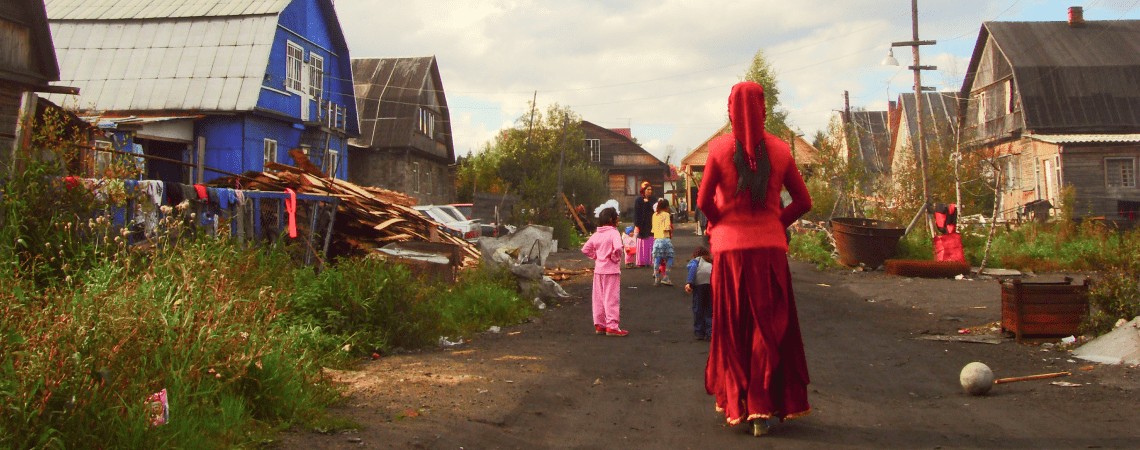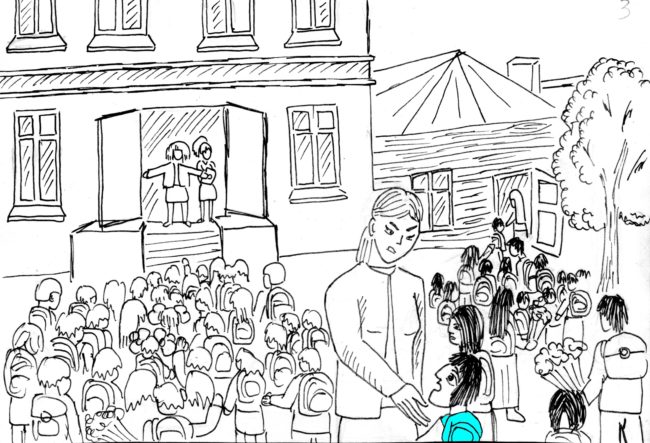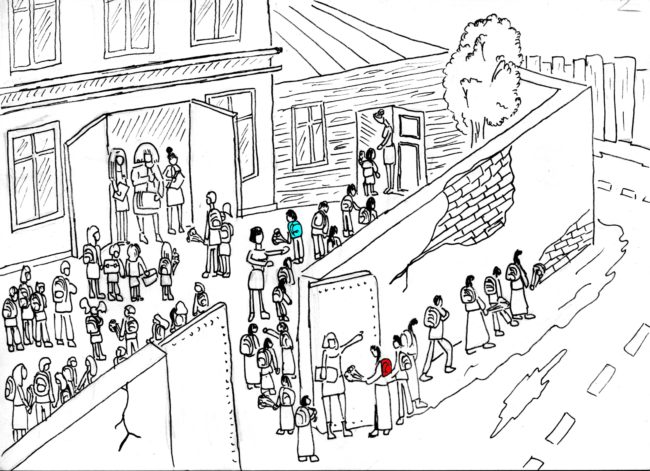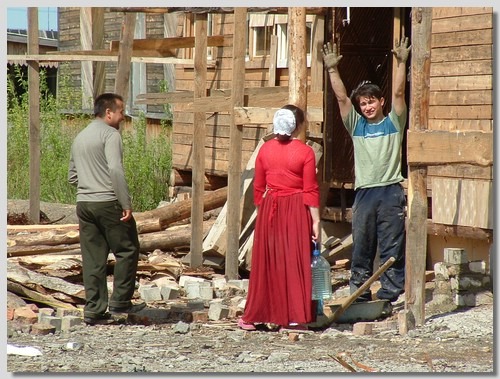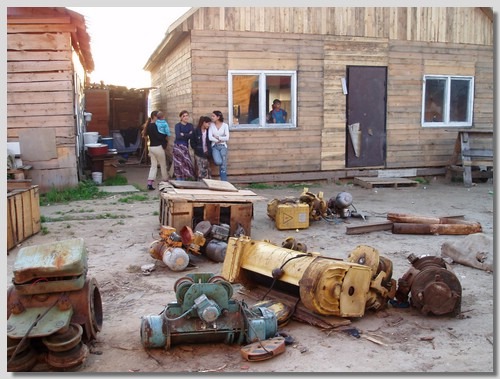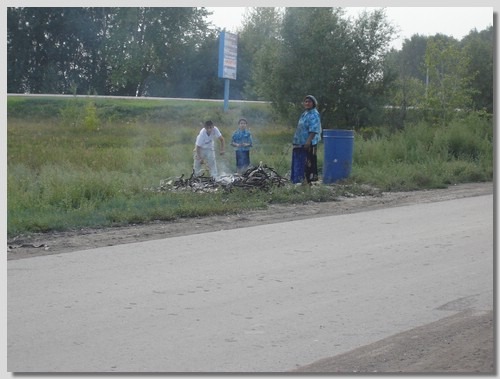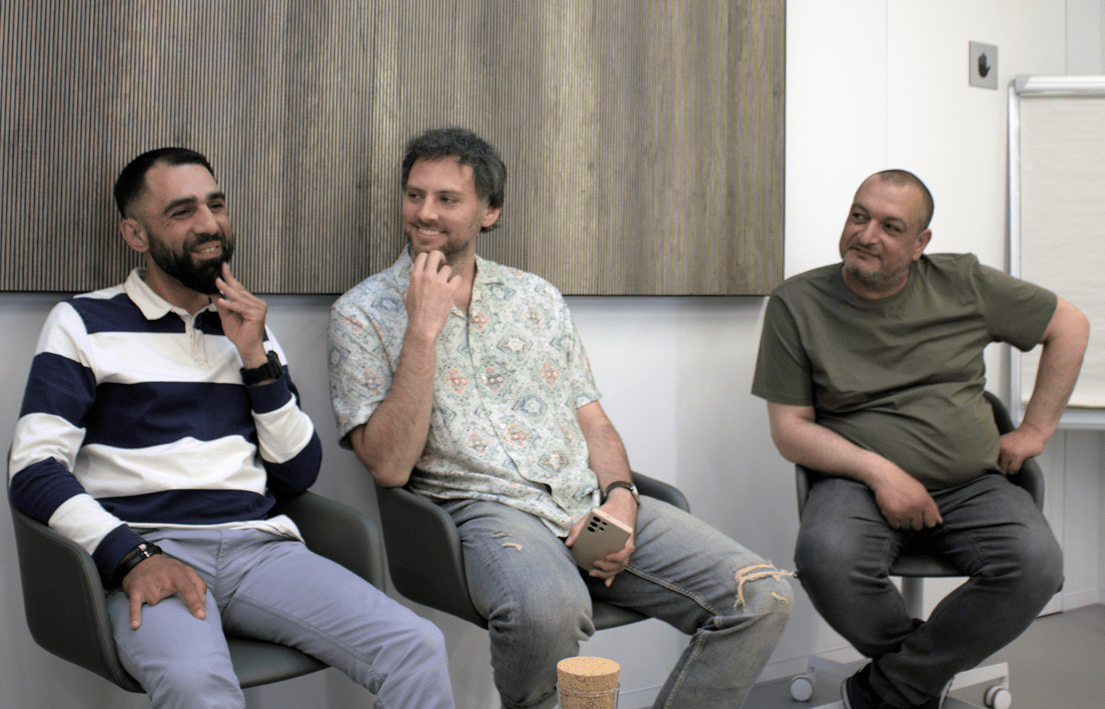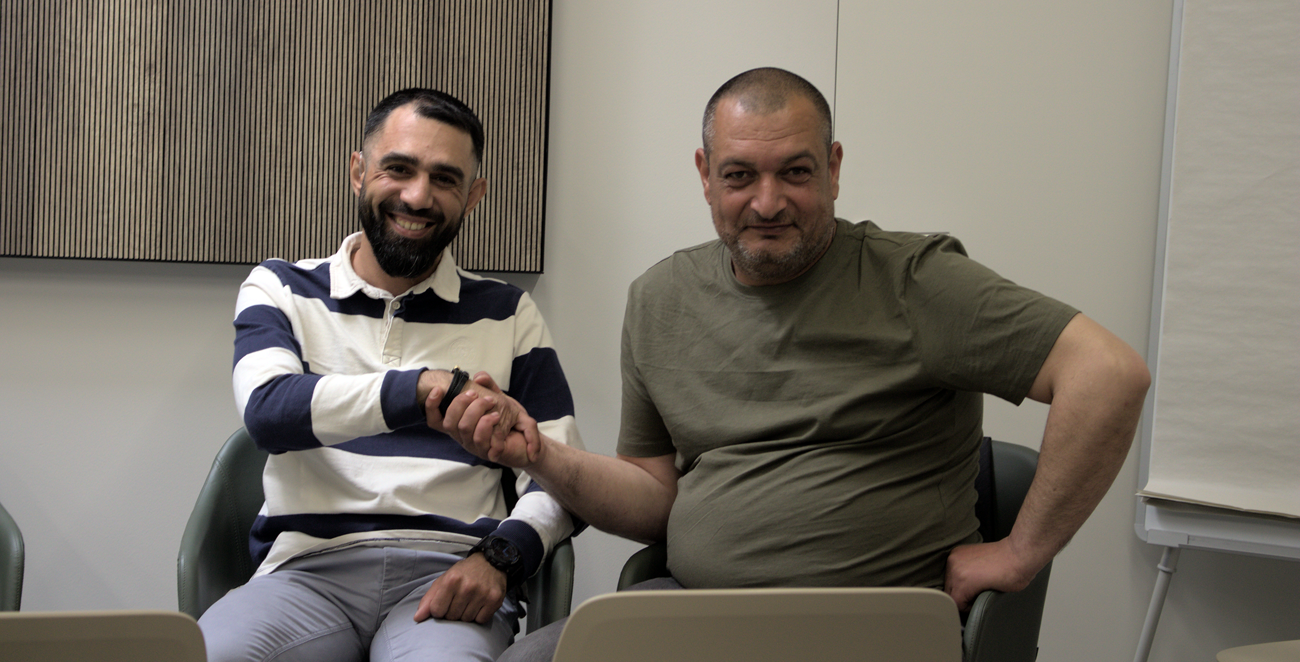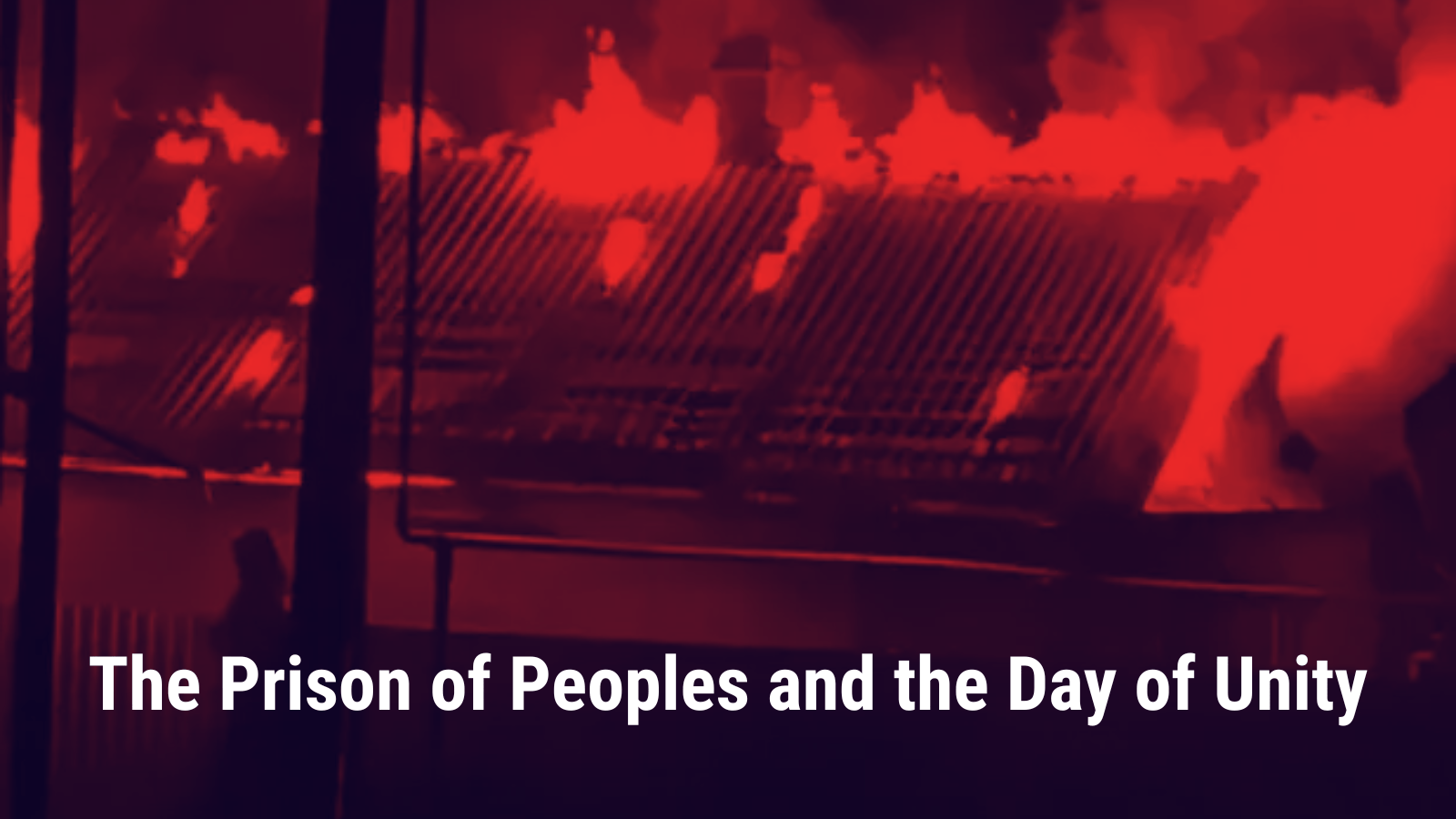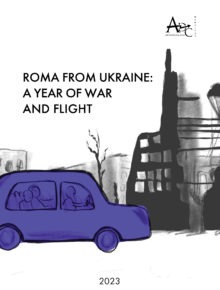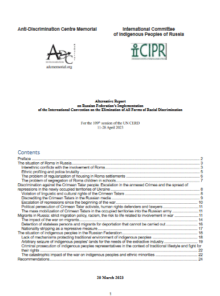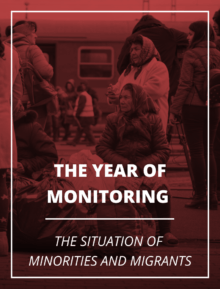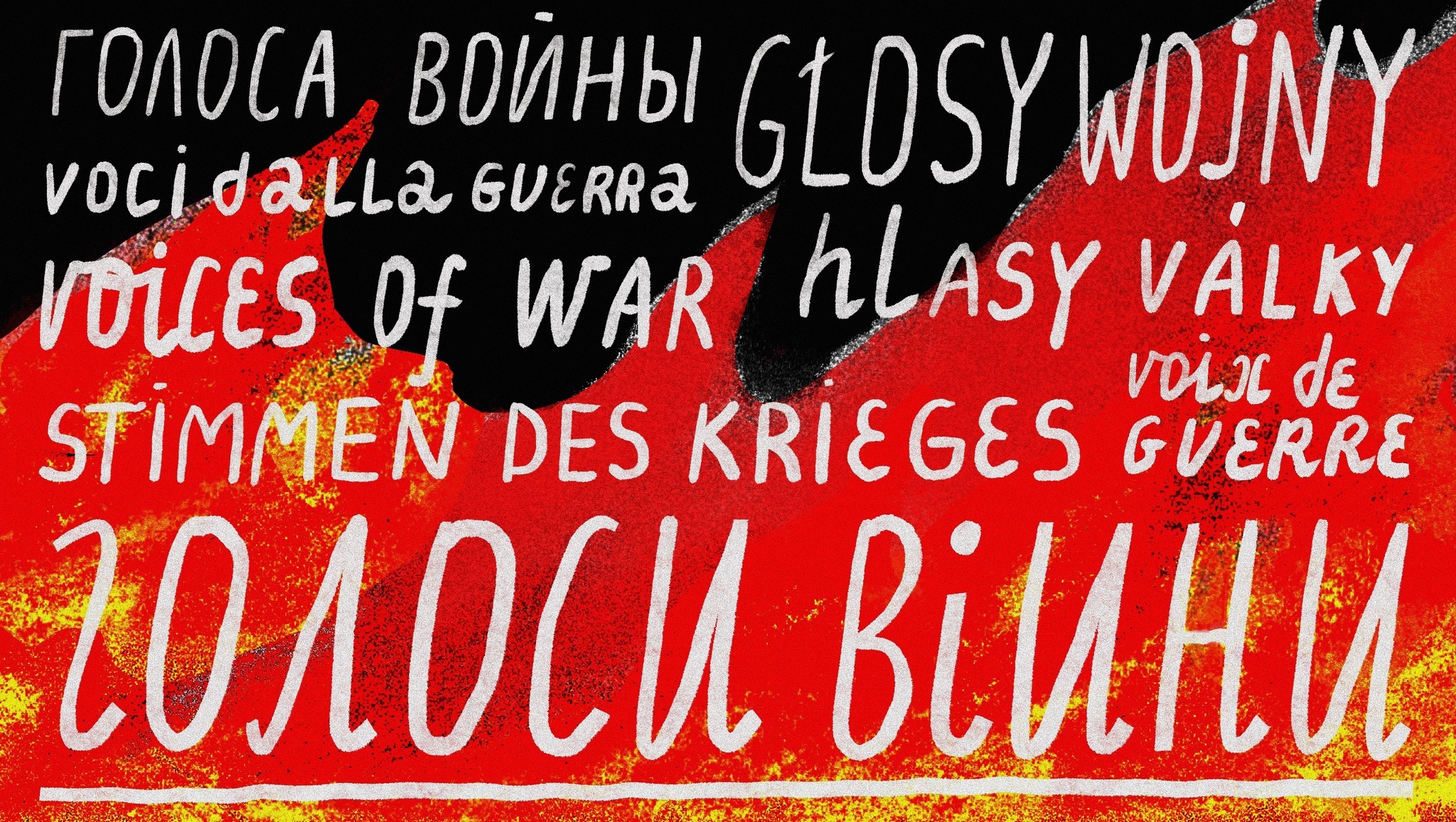Poor education, unemployment, poverty, raids, pogroms and other manifestations of racism, arbitrary police behavior, demolition of homes, and lack of documents—this has been the reality for generations of Romani people. These factors not only blend together, but also reinforce one another, forming a vicious circle of structural discrimination.
Inadequate education
A poor education and even illiteracy are two of the most important causes of the marginalization of Romani people. The right of Romani children to education is violated everywhere. Many Romani children encounter discrimination in the Russian education system, which places them in “remedial classes” under baseless pretexts (like “bilingualism,” for example) or in separate, isolated “Roma classes” or even segregated schools that do not meet educational standards. After elementary school, they are often transferred to “homeschooling,” which essentially amounts to a distortion of education, or simply not accepted into secondary schools. With the end of schooling comes the end of their childhoods: The community practices early marriage and life becomes particularly difficult for Romani girls.
В результате ромские дети не только не получают базовых, необходимых знаний, но и оказываются изолированными от свThis means that in addition to not learning basic, essential skills, Romani children are also isolated from their peers. Few Romani children earn a secondary school diploma, even though the right of children to education is guaranteed by the laws of all the countries in the region. Functionally illiterate people are poorly suited to life in today’s society: They cannot fill out documents, find jobs, or protect their rights.
Unemployment
Romani people have a hard time finding work, not just because of their low level of education but also because of ethnic discrimination. For example, the majority of Romani people surveyed by Belarussian researchers complained of discrimination in their job searches. Since Romani people are afraid to file complaints concerning illegal dismissals or rejections, there is no specific data on this problem, but the high level of unemployment speaks for itself. Instead, Romani people are forced to eke out a living with temporary jobs and frequently move in search of work. Their traditional and informal types of work (fortunetelling for women, artisanal work for men) are no longer in demand, and poverty leads to the criminalization of some of the unemployed, which heightens the population’s stigmatization and results in persecution and arrests.
Problems with the law
Romani people are frequently the victims of police persecution and violence. The police apply the principle of collective responsibility broadly: Raids and round-ups of entire Romani settlements can be caused by real crimes (that are often committed by other people, which is what happened in Bryansk after an infant disappeared in 2011) or imagined crimes (like the raid in Mogilev in the summer of 2019). Romani people are also frequently subjected to entirely groundless persecution because of racism on the part of police officers and officials. Arrests, interrogations, and even violence are also used against individuals and fortunetellers suspected of fraud. Sometimes law enforcement bodies even take advantage the legal vulnerability of the Roma population to create reports about “completed work.”
Demolition of homes
A large number of Romani people live in settlements that arose in Soviet times after nomadism was banned. Romani homes and the land on which they are located are rarely officially registered because of the low level of legal literacy and lack of resources in Romani communities. Without registration, it is difficult to enroll children in school or get medical care. Furthermore, it is illegal to run water, gas, and electric lines into these homes. This means that people must register at another place or connect to electricity and heat on their own. Instead of providing a systematic solution to these problems, the authorities respond with repressions by disconnecting entire settlements from utility lines, even in the coldest times of the year. In many cases, problems paying for heat and electricity cause the demolition of entire settlements, leaving Romani families homeless, in deeper poverty, and without an education for their children because they are forced to migrate.
Racism
The sum total of these problems makes the Romani community closed, poor, and disadvantaged, resulting in heightened racial prejudices. The authorities frequently publicly accuse Romani residents of social problems, for example, violating sanitary norms and spreading disease. These kinds of statements give a green light to discriminatory behavior on the part of state services and society as a whole, which only exacerbates the situation of Romani people.
Pogroms
One of the most extreme forms of racism is pogroms. Local mundane conflicts or suspicions of committing a crime lead to collective violence that is tolerated and even supported by the police. For example, in June 2019 over 900 Romani residents of the village of Chemodanovka were forced to flee their homes after a mass brawl. Similar conflicts took place in the Kuznetsk Basin that August and in Ust-Abakan a year earlier. Several Romani settlements in various cities throughout Ukraine were subjected to attacks by ultra-right groups in 2018, and a pogrom took place in Odessa Oblast in 2016. Most of the participants in anti-Roma actions like attacks, pogroms, and arson were never prosecuted.
Overcoming discrimination
The vulnerable position of Romani people has been reproduced over generations and can only be overcome with the help of systemic integration and support measures. Instead of raids and segregation, the government must provide a comprehensive education for children, legalize homes and documentation, offer employment assistance, and conduct outreach work with local residents and the authorities.
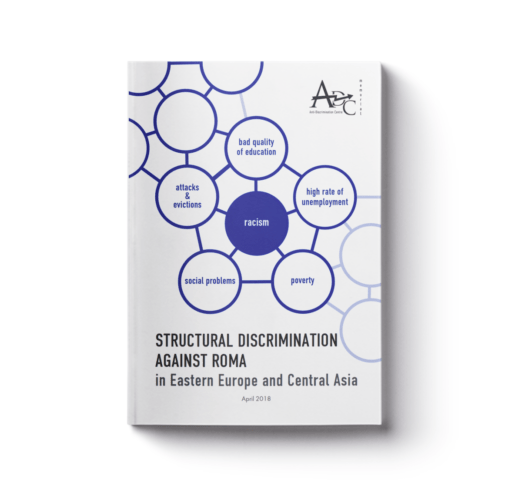









 Feedback
Feedback 